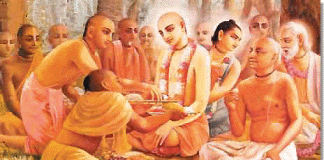With the total number of deaths due to swine flu heading towards 1000 and over 15,000 people affected with the H1N1 virus across India, it’s important to share the following information about swine flu.. As of now swine flu is considered to be a deadly disease:
- Swine flu (swine influenza) is a respiratory disease caused by viruses (influenza viruses) that infect the respiratory tract of pigs. Usually the virus is spread only among pigs, but it has now become deadly for humans. Till now, the disease has claimed more than 800 lives across India in 2015.
- Swine flu is highly contagious, spread quickly from person to person through air, mucus and saliva particles. One should cover the nose and mouth while coughing or sneezing because a simple cough or sneeze can spread thousands of germs through the air.
- Symptoms of swine flu are similar to the symptoms of seasonal flu. Early symptoms include – cough, fever, headache, sore throat, muscle pain, chills, vomiting or diarrhoea. If a person develops one of these symptoms, he/she should immediately consult a doctor.
- People who are at most risk include – children below three years of age, pregnant women, adults above 60 years of age, people with certain medical conditions such as heart disease, lung disease, asthma, diabetes or those with weakened immune systems.
- Swine flu can be diagnosed only through test in a specialised laboratory by identifying the particular antigens associated with the virus type. Recently, the Delhi government has fixed the rate for tests at Rs 4500, while private labs were charging up to Rs 10,000. Oseltamivir, marketed under the trade name Tamiflu, is the recommended anti viral drug which helps treat swine flu.Swine flu in India: Five facts you should know about the deadly virus | Zee News
Here are a few tips that you can follow as suggested by health experts, if you suspect that you may have contracted the H1N1 virus:
- Avoid contact with other people for a week after the symptoms develop or till the symptoms go away
- Do not go to work or school
- Do not travel
- Make sure that you cover your coughs/sneezes using a tissue
- Wash your hands often to avoid spreading the virus
- Visit the nearest healthcare centre to access medical care if required
- People at higher risk for complications of the flu should talk to their doctor immediately as soon as the symptoms arise
- These include – children younger than five years of age, people 65 years and older, pregnant women and people of any age with certain medical conditions such as cancer, heart or lung disease, diabetes, and those with weakened immune system.
However, it is recommended that everyone should seek medical aid immediately regardless of whether or not you are in a high-risk group to avoid further complications. http://zeenews.india.com/news/health/tips/swine-flu-measure-what-to-do-if-you-suspect-you-have-h1n1-flu_1542571.html



























